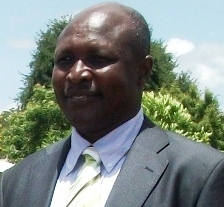“There are some Counties with a huge number of NGOs; their presence deprives other Counties from developing and other essential services. This is an unfair practice. This shows that NGOs choose where they want to operate without consultation with State authority” – NARTISIO LOLUKE.
State and SNV officials want regulations to guide nonprofit work in line with the Paris Declaration and Accra Agenda so as to increase aid effectiveness and remove aid bias
Eastern Equatoria has unveiled new regulations for NGOs seeking to operate in the state that would ensure the civil society entities are evenly distributed amongst the eight counties, following earlier calls by the SNV Advisor on Political Affairs.
Officials said the move was aimed at ensuring equitable distribution of essential services to the state citizens.
Deputy Governor Nartisio Loluke Manir has said that the State Government has placed a number of strategies to ensure NGOs fairly and uniformly operate in all Counties from now.
“There are some Counties with a huge number of NGOs; their presence deprives other Counties from developing and other essential services. This is an unfair practice. This shows that NGOs choose where they want to operate without consultation with State authority,” he protested.
Earlier this year, an Advisor on political Affairs to a Dutch international organization (SNV) in South Sudan, Imke Van, called on the Government to regulate NGOs operations in the region.
While addressing a NGOs coordination meeting at Torit Diocesans Hall in Torit earlier this year, Imke stressed that there was a serious need for regulation so as to guide NGOs programming processes.
He recommended a need for registration at State level and need to have focal point or one-stop window for NGOs at the State level. Imke clarified that by implementing this move, it will serve as conformity to South Sudan labour laws by the NGOs.
Imke also calls for a need to collate and regularly update the various data relating to NGOs in the central data-bank in the State Ministry of Finance, Trade & Industry.
PARIS DECLARATION AND ACCRA AGENDAhttps://www.oecd.org/dac/effectiveness/parisdeclarationandaccraagendaforaction.htm
The SNV advisor underscored the rationale for coordination with the Government as the Paris Declaration/Accra Agenda which calls for aid effectiveness, ownership and capacity.
He added that programme alignment and harmonization is the most considered tool apart from healthy development dialogue process.
“If this strategy is successful, resource investment flows and accountability spinoffs should be included as a rationale for coordination with the Government,” Imke stressed.
He also urges that the Government needs to put in place relevant policies and laws that seek to ensure friendly environment for effective operation of NGOs in the region for better service provision.
According to Governor Lobong, South Sudan’s post independence era renders the new Republic vulnerable if continuous efforts are not jointly driven. He said government must endeavour to focus on delivering basic services for her citizens who struggled for freedom and liberty.
He called for joint efforts from the international community in mobilizing resources towards development of the Africa’s newest State, while similarly appealing to development partners working alongside the State Government to execute their programs in a transparent and accountable manner.
The Human right activist in the state Lona Dawa hailed the job the non governmental organizations have done to contribute to development during the last five years and reconciling the warring tribal groups in the state that has now brought the spirit of coexistence among the different factions.




